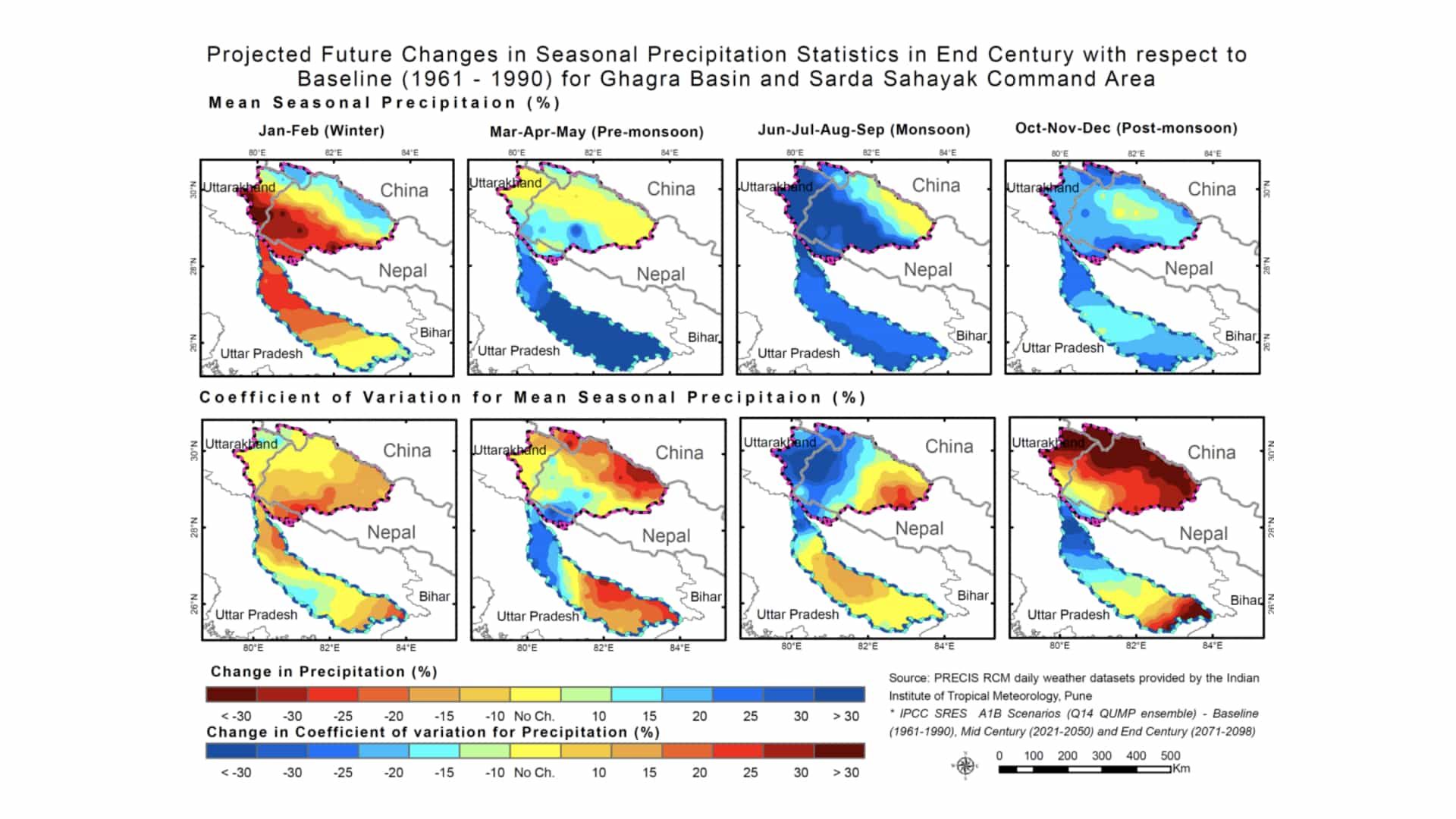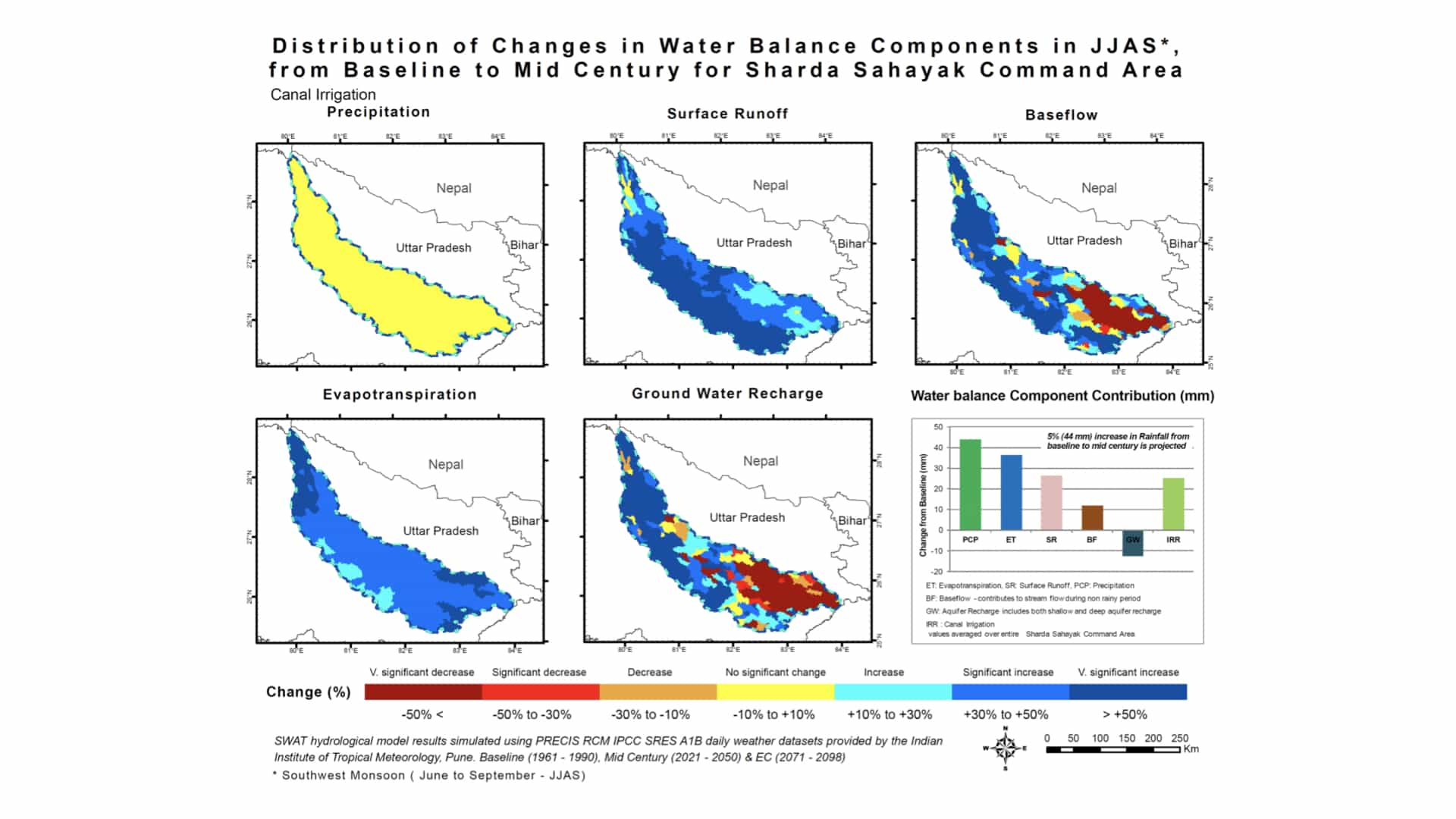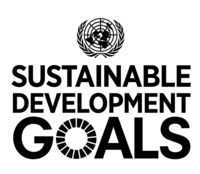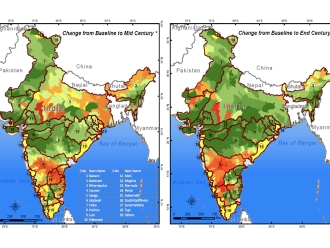 Study Area - The Ganga basin lying within Uttar Pradesh contributing to SSP
Study Area - The Ganga basin lying within Uttar Pradesh contributing to SSP
 Current monsoon water balance components for modelled part of the Sarda Sahayak command area (Demand side)
Current monsoon water balance components for modelled part of the Sarda Sahayak command area (Demand side)
 Current crop yield for modelled part of the Sarda Sahayak command area (Demand side)
Current crop yield for modelled part of the Sarda Sahayak command area (Demand side)
- Water-agriculture-energy nexus
- Climate change
- Canal irrigation system
- Policy implications
- Hydrological modelling
- Energy-economic-environment model
- Sarda Sahayak Canal System
- Sardar Sarovar Canal System
- Adaptation Strategies
- SDG#6 Clean water and sanitation
- SDG#7 Affordable and clean energy
- SDG#13 Climate action
Project Summary
The study is aimed to provide a holistic view to water-agriculture-climate change and energy nexus in the context of two canal irrigation systems, namely Sarda Sahayak Canal System and Sardar Sarovar Canal System (Main canal). This integrated study has provides policy insights for irrigated agriculture systems. It was an innovative attempt to use a soft-link approach between climate models, hydrologic models and economic-energy-environment models to integrate water-agriculture-energy and climate change in the context of a canal irrigation system. A framework to capture water supply and demand ( agriculture, residential, industrial, energy and environmental) in the command and catchment areas of two canal irrigation systems is constructed which is required to assess the implications of climate change on these demands. Future, scenarios to articulate policy implications for water-agriculture-energy-climate change nexus is attempted.
Study Objective
The main objective of the study is to assess the impact of climate change on water-energy nexus in agriculture under canal irrigation system. This project dealt with six components designed to utilize the expertise available with the three consortium partners (INRM Consultants, New Delhi; IIM, Ahmedabad; CSWCRTI, Dehradun). The components were:
- Water balance assessment – Baseline and Climate Change scenarios
- Existing water demands - Baseline
- Future water demands - Climate Change scenarios
- Economic impact assessment
- Integrate water and energy implications for Indian agriculture - Baseline and Climate Change scenarios
- Policy implications of energy-water nexus for canal irrigation systems under changing climate scenario

Figure: Projected change in mean seasonal precipitation in mid century with respect to PRECIS baseline for the study area
Findings
The salient achievements of the study include:
- Development of Water balance assessment framework and estimation of water availability for two canal irrigation systems, incorporating their respective agriculture command areas.
- Assessment of existing and future water demands for agriculture, domestic, industrial, energy and environmental flows for the command area of the two-canal irrigation systems.
- Development of an economic impact assessment framework due to climate change for these canal irrigation systems.
- Application of energy-economic-environment models to integrate energy and water implications on Indian agriculture.
- Incorporating climate change uncertainties under climate change scenario to estimate the policy implications of energy-water nexus for canal irrigation systems.


Figure: Change in monsoon (JJAS) season water balance components from baseline to mid century for modelled part of the Sarda Sahayak (Demand side)
2 cases: Rainfed crops and Canal irrigated crops
Linkage to the SDGs

Goal 6: Clean water and sanitation
Ensure availability and sustainable management of water and sanitation for all.
The study has dealt with sustainable management of water for agriculture which is the major user of water in India.

Goal 7: Affordable and clean energy
Ensure access to affordable, reliable, sustainable and modern energy for all.
Water-Agriculture-Energy nexus has been studied for irrigation command of two canal projects. Sustainable production of green energy under the present and future scenarios has been studied and economic feasibility evaluated.

Goal 13: Climate action
Take urgent action to combat climate change and its impacts.
Economic impact assessment framework due to climate change for these canal irrigation systems has been developed and suitable actions recommended.
We create integrated solutions for all issues Water
Let's connect
Integrated solutions. Domain expertise. Issue analysis.
Reach out to discuss a potential collaboration, something that piqued your interest in our work, just one planet enthusiast to another - we look forward to hearing from you!
Get in touch with us
+91 9717893921
5-B-2, B Block, 5th Floor, R&I Park, IIT Delhi, New Delhi - 110016, India





